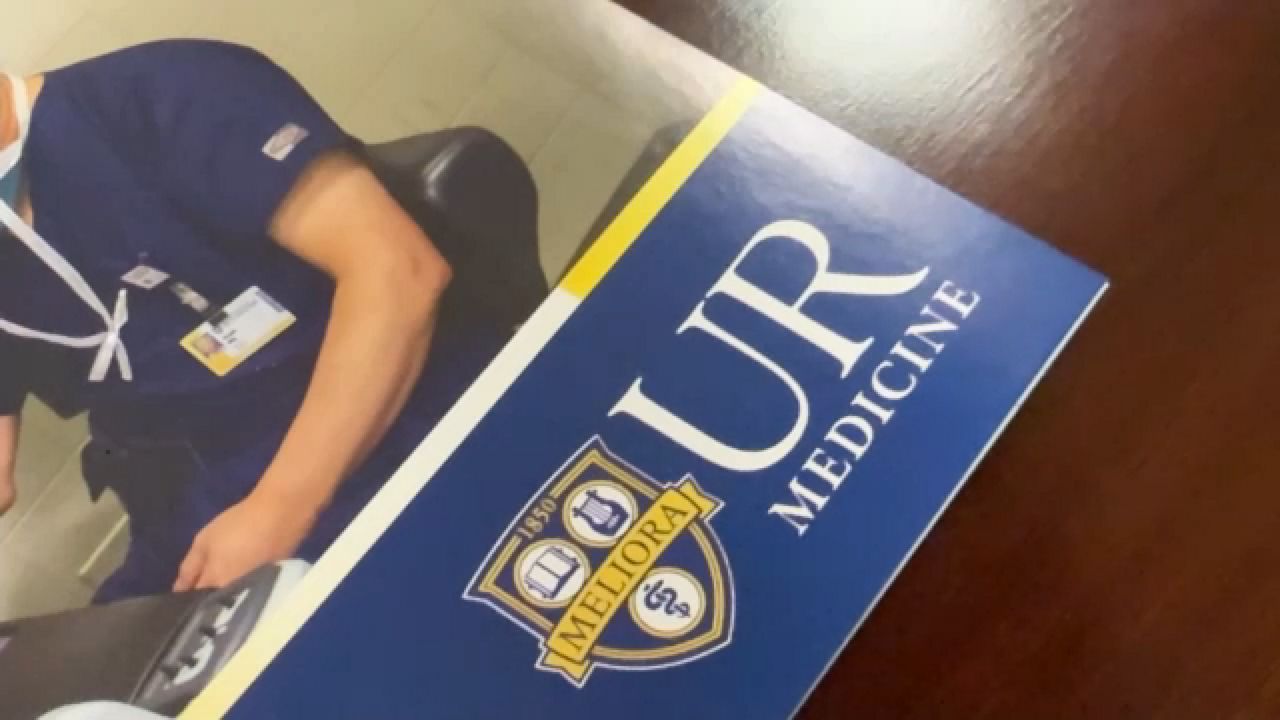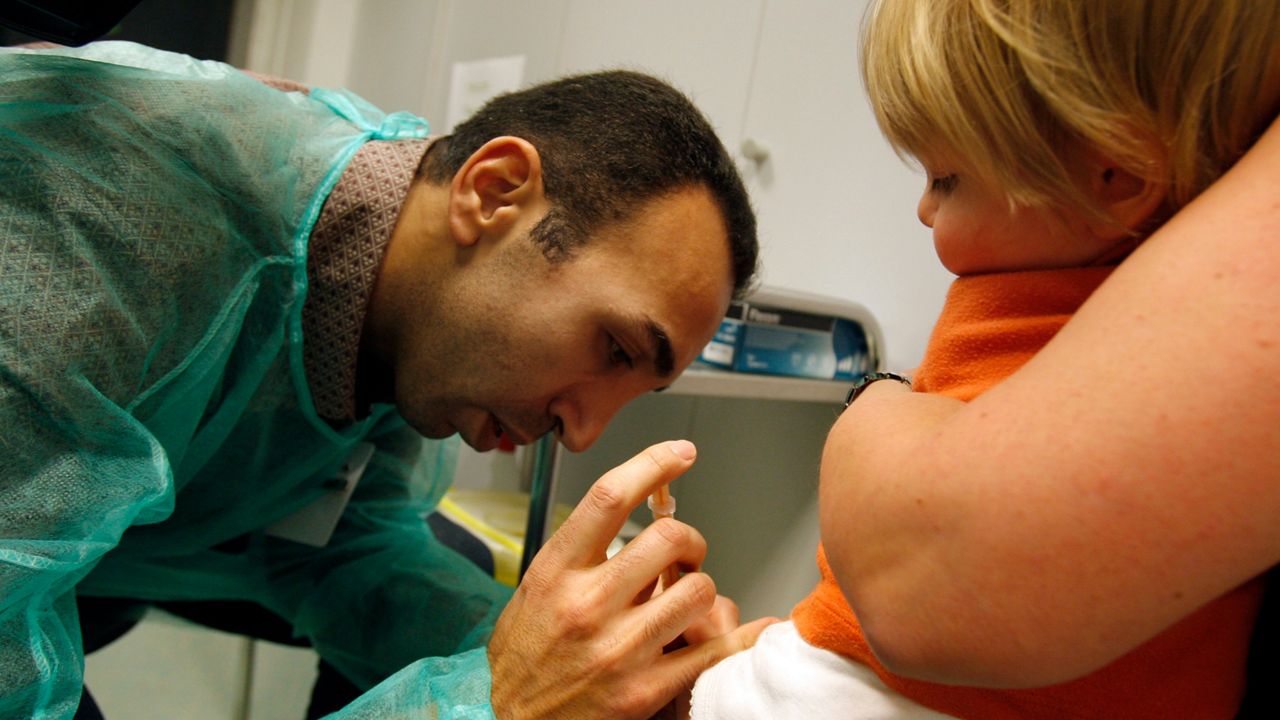For individuals and families who are beginning to deal with dementia and Alzheimers Disease, Brain Awareness Month in June is a time to reflect on the challenges that face them and the resources that are available.
The Alzheimer’s Association has chapters across the country that provide support groups for individuals with the disease, as well as their caretakers, in addition to activity groups and other services. For couples who are dealing with the early stages of the disease, it means constantly managing the changes the disease brings to day-to-day life.
Shirley Boyd and Donna Ford, who live in the Syracuse area, have been together for more than 30 years. Ford lives with Alzheimer’s, and one of the things she’s determined to keep up is gardening.
What You Need To Know
- June is Brain Awareness Month and for individuals and families who are beginning to deal with dementia and Alzheimers Disease, it’s a time to reflect on the challenges that face them and the resources that are available
- For couples who are dealing with the early stages of the disease, it means constantly managing the changes the disease brings to day-to-day life
- You can reach out to your local Alzheimer’s association chapter to see what resources they have available, including multiple support groups. You can also learn more by calling their 24-hour helpline at 800-272-3900.
“I’m going to keep doing this and this and this, the same things that I’ve been doing until whatever happens that I know that I can’t physically do it anymore,” she said.
Boyd said one of the most important things they learned when she was diagnosed four years ago is to be open with their many friends and relatives and embrace their support.
“I said, 'We really should tell these close friends,' and Donna looked at me and said, ‘Do we have to put it in the Post Standard?’” she said with a laugh. “I said, 'no.'”
They met on the golf course and continue to golf and play tennis weekly, part of their determination to keep Ford’s brain and body active.
“We enjoy an active social life. We have a ton of wonderful friends,” she said, emphasizing how close they are with the friends they play golf with.
Down the road is another couple that Boyd and Ford know from their Alzheimer’s Association support group. Jim and Linda Lemessurier are also avid gardeners.
“Later this afternoon, I’ll come out and water the garden,” Linda Lemessurier said. “It’s a lot of work, but it’s good therapy and it keeps me out of trouble.”
Recently, Linda Lemessurier said she’s found herself doing more to keep up the property.
“I won’t even let Jim mow the lawn because I’m afraid it will get burned out if he goes down too low,” she said.
The retired teacher said it’s part of being a caregiver for a life partner in the earlier stages of the disease: Mastering the things they once handled.
“It’s generally an everyday, taking care of finances, from your insurance to your housing to your cars to your investments,” she said.
Jim Lemessurier, who ran his own insurance office, said he’s been surprised by the things that have become challenging.
“This situation is difficult, but Linda has been very careful in helping me. But there’s certain things that I never thought they would affect me the way that it has,” he said.
Linda Lemessurier said when those things arise, she’s ready to take the lead.
“You learn real fast how to do it as a daily, on-the-job learning experience,” she said. “That’s what it really comes down to.”
She does it with a sense of humor, joking with her husband that she’ll keep him. Just like activity, she said that sense of humor is important.
“You try to keep up a good attitude and there are some very, very lonely times, I think on both parts,” she said. “I think you feel lonely, and at times, I feel lonely,” she said.
He agreed.
Nearby, Mary Mayfield lives alone on property shared with family members. She recently was forced to stop working, but emphasized how much the Alzheimer's Association programing has helped her make the adjustment.
“By telling your story, you might be helping someone who didn’t think of what you were doing,” she said of the support groups. “I try to keep myself busy. I like to cook and I have two grandchildren, and so I’ve been doing a lot of cooking for them so they don’t have to worry about what they’re doing for meals.”
She credits the Alzheimer's Association with giving her the confidence to figure out what works best for her.
“It’s an absolutely wonderful organization, and I encourage anyone who is just getting their diagnoses to contact them,” she said.
All five agreed that determination to move forward is crucial.
“Just get out and do it,” Jim Lemessurier said. “You’ve done it for 30, 40, 50, 60, 70 years. I’m not gonna let it ruin me now.”
“I think the best thing you said was 'I tried to fight it, but now I’m learning to live with it,'” Linda Lemessurier replied. “I think that’s the best attitude to have on your part.”
It's a determination Ford and Boyd said they won’t be giving up.
“We are going to fight this and work along, and there will be changes in our life. Sometimes, I want to not think about them as does Donna want to not think about them, but four years this summer, we haven’t changed her life a whole lot lot,” Boyd said.
You can reach out to an Alzheimer’s Association chapter to see what resources they have, including multiple support groups. You can also learn more by calling their 24-hour helpline at 800-272-3900.










